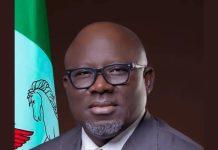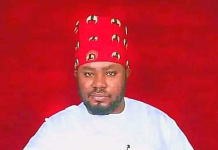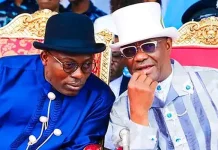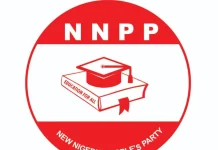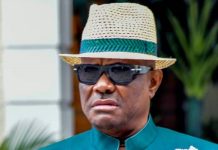Juridical correspondents have been charged by Justice Salisu Garba Abdullahi (rtd), the administrator of the National Judicial Institute (NJI), Abuja, to ensure fair and impartial reporting of judicial proceedings, particularly in this day and age when fake news is frequently spread via social media.
During the opening of a two-day training for members of the Abuja branch of the National Association of Judiciary Correspondents, hosted by the NJI, Justice Abdullahi made this statement on Wednesday.
As judicial correspondents, the Administrator informed the participants that public opinion and public confidence are directly impacted by their portrayal of the judiciary in a positive light.
The NJI Administrator encouraged judiciary reporters to consistently follow the rules and ethics of journalism practice, with the topic being “Pursuing Media Service Excellence for Optimal Productivity in the Judiciary.”
Abdullahi gave off the assurance that consistently upholding the profession’s ethics will undoubtedly foster media quality, which will further maximize judicial output as the topic states.
“It’s critical that I stress the need for journalists and judiciary correspondents to maintain objectivity.”It is said that the pen is mightier than the sword. Since biased reporting would undoubtedly spark partisan reactions, you will concur with me that it goes against the foundations of a democratic society.
“Consequently, it is imperative that all stakeholders work together to accomplish the goal of making sure you are on par with your peers in other regions and adhere to international best practices,” the NJI Administrator stated.
Justice Abdullahi emphasized to the attendees that judicial integrity plays a critical role in fostering public confidence in the judiciary. As such, reporters covering the judiciary must carefully craft their reporting to accurately portray the integrity of judicial officers, as this is what he said is most important.
The Administrator emphasized once more how crucial a role court reporters play in covering judicial authorities in order to enhance openness.
Abdullazeez Olumo Esq., the Secretary of the National Judicial Institute, reminded attendees that the workshop’s theme also applies to the media during his remarks.
Recognizing the strong rapport that exists between judiciary correspondents and the NJI, Mr. Olumo regretted that the public’s opinion of the judiciary has not been positive and praiseworthy.
According to Mr. Olumo, what Nigerians read in the media and on social media is to blame for the declining and unfavorable public opinion of the judiciary.
He clarified that the public is typically unaware of how the judiciary functions and insisted that, instead of focusing on sensationalism and biased reporting, the media, and especially judiciary reporters in particular, should use their reports to educate the public about this issue.
Read Also: President Tinubu, Shettima To Spend N10billion On Trips In 2024, N200milion To Feed Aso Rock Animals
Olumo claims that certain cases that shouldn’t even be in court are filed, and when the side losing ends up with a negative ruling, they turn to criticizing the judiciary in public statements.
When a matter is heard and decided by the court, the following factors are crucial: the law, the facts, and the evidence. You will undoubtedly obtain justice if you compare these three problems and make a strong case in court.
“The court will return to you what you give it. The court is not a Santa Claus that grants wishes without asking.
In order to lessen the people’s unfavorable opinion of the judiciary, Olumo stated that the media, particularly judiciary correspondents, should work to educate the public through unbiased, factual, and knowledgeable reporting.
“Only the judiciary correspondents possess this ability, and we urge you to maintain objectivity and impartiality in your reporting, avoiding sensationalism,” said the NJI Secretary.
Assuring that the workshop is here to stay, Olumo from the Institute stated that learning is a lifelong process.
According to Olumo, education is a lifelong process that ends when a person passes away.
For this reason, he gave his word that the NJI would keep holding seminars aimed at developing the competence of Judiciary Correspondents.
The National Association of Judiciary Correspondents Abuja Chapter Chairman, Mr. Kayode Lawal, also spoke and praised Justice Garba Abdullahi (rtd), the Administrator of NJI, for keeping his word and making sure the yearly workshop for Judiciary Correspondents continues.
Lawal acknowledged that since the capacity-building workshop’s founding many years ago, Judiciary Correspondents have improved their reporting of the courts by being more exact, deliberate, and cautious in their use of technical terms and reporting goals.
He promised that in addition to avoiding disrespectful topics, sensationalism, and objective reporting, judiciary reporters will continue to carry out their duty without fear or favor.
The first paper presentation was given by Venerable Tunde Oyesina Esq. of the New Telegraph newspaper, with the topic “Reportage of Court in Proceedings: Respect for Victims, Privacies and Presenting the Truth to the Public.”
Join Television Nigerian Whatsapp Now
Join Television Nigerian Facebook Now
Join Television Nigerian Twitter Now
Join Television Nigerian YouTUbe Now

